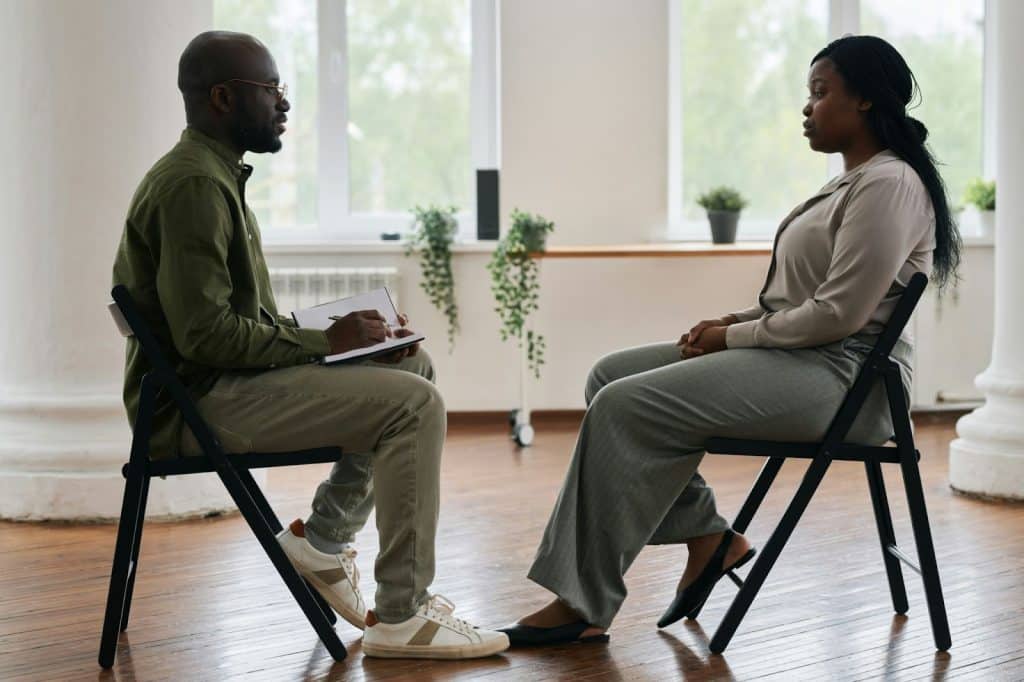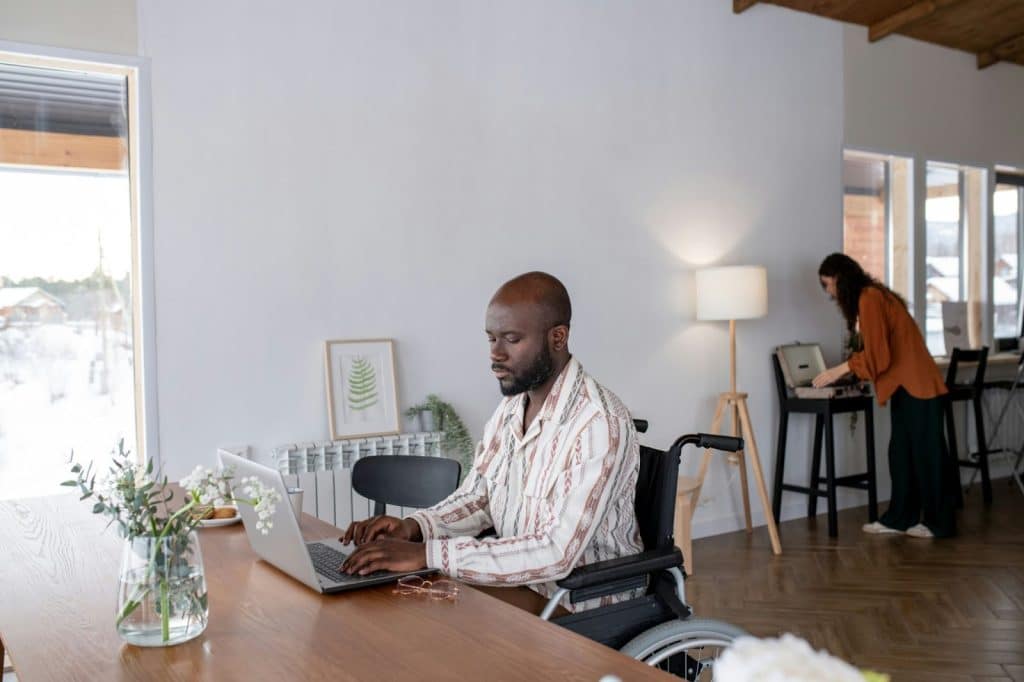
Space between partners is meant to strengthen connection, not replace it. It gives room for individuality, reflection, and rest. But over time, healthy space can quietly shift into emotional distance, a version of peace that feels too quiet. The check-ins slow, the laughter fades, and the bond that once felt effortless now requires intention. It doesn’t happen suddenly; it unfolds through small silences that go unaddressed. Space stops healing when it starts hiding.
They Stop Sharing the Small Details

It begins with fewer updates about the day, fewer random thoughts shared in passing. What used to be casual conversation now feels optional. Sharing no longer feels necessary when emotional investment fades. It’s not avoidance at first, it’s fatigue, or habit. But when small talk disappears, connection starts losing its daily rhythm. The little things are what hold closeness together; without them, distance begins to grow.
Conversations Feel More Informational Than Emotional

Dialogue turns practical, about errands, logistics, or schedules. The emotional undercurrent that once made every talk feel alive is gone. Both still speak, but not with depth or warmth. “How was your day?” becomes a formality rather than curiosity. When communication stops exploring the emotional side, the relationship turns functional instead of intimate.
They Start Saying “I Just Need Some Time” More Often

Needing time alone is normal, but when it becomes the default response, it can signal emotional fatigue. Space stops being restorative and starts being a buffer from connection. The request sounds calm, but it hides discomfort. It’s not time apart they need; it’s time away from pressure. Healthy space builds clarity, unhealthy space avoids it.
You Feel More Relief Than Warmth in the Quiet Moments

Quiet used to feel peaceful, now it feels like absence. The silence once shared comfortably now separates instead of soothes. You start mistaking detachment for calm. Relief replaces joy, signaling that closeness has become effort instead of ease. The absence of tension shouldn’t mean the absence of connection.
Texts and Calls Become Shorter, Less Frequent

Replies come slower, messages grow shorter, and conversations end sooner. Nothing seems wrong, yet everything feels different. It’s not that they don’t care, it’s that they’ve stopped reaching emotionally. Communication turns mechanical. You start sensing presence through words, but not through meaning.
You Stop Noticing Each Other’s Moods

You used to sense when something felt off, but now subtle shifts go unnoticed. The empathy that once felt automatic becomes effort. Emotional distance dulls intuition; you stop reading each other like before. Connection doesn’t disappear in silence, it fades in indifference. When awareness fades, love loses its attunement.
There’s More Silence Than Dialogue

Conversations shrink without conflict. The air feels heavy with things left unsaid. It’s not the silence of comfort, it’s the kind that grows from hesitation. Both are waiting for the other to speak first. When quiet becomes the norm, it’s not rest; it’s retreat.
They Listen, But Don’t Really Engage

They hear your words but don’t absorb them. Their responses sound right, but lack emotional weight. You feel unheard, not because they’re ignoring you, but because their presence is half-hearted. Listening is no longer connected, it’s routine politeness. Engagement without empathy is the first stage of emotional withdrawal.
You’re Together, But It Feels Like Being Alone

Physical closeness can’t replace emotional presence. You share the same room, same bed, same routine, but not the same warmth. Togetherness becomes proximity, not partnership. The quiet between you stops feeling intimate and starts feeling isolating. Loneliness with someone else hurts more than being alone.
Affection Feels Like Obligation, Not Expression

The gestures remain, a kiss goodbye, a pat on the shoulder, but they feel practiced, not personal. Affection becomes a habit, a box checked to avoid questions. Love expressed without emotion becomes performance. The body remembers touch, but the heart no longer responds.
They Stop Noticing Changes in You

You change your hair, your tone, your mood, and it passes unnoticed. It’s not neglect on purpose, but emotional disconnection by default. When attention fades, appreciation follows. The effort to see one another diminishes, leaving both feeling unseen. Connection fades not through conflict, but through forgetfulness.
Moments That Used to Feel Intimate Now Feel Routine

The shows you watch together, the dinners you share, all feel predictable. Comfort replaces curiosity. You stop asking questions, stop exploring each other’s thoughts. Familiarity without renewal becomes monotony. Love stagnates when presence stops evolving.
They Spend More Time in Their Own World

They stay longer at work, scroll longer on screens, or dive deeper into hobbies. Alone time stops feeling balanced and starts feeling isolating. You stop being part of their day-to-day emotional world. Space that once refreshed connection now reinforces separation. When life runs parallel instead of intertwined, emotional distance solidifies.
They Stop Asking About How You Feel

Conversations stay surface-level. They no longer ask “How are you, really?” or listen for the truth behind your tone. You start editing yourself, sharing less to avoid indifference. Empathy disappears quietly, replaced by assumption. Love without emotional curiosity becomes coexistence.
You Start Guarding Your Words Around Them

You notice yourself filtering your honesty, afraid of being misunderstood or dismissed. Emotional self-censorship becomes your new normal. You still talk, but not deeply. Connection weakens when expression feels unsafe. Silence becomes mutual, not because you want it, but because it feels easier.
They Stop Reassuring You Without Being Asked

Comfort used to be natural, a hand squeeze, a look, a word. Now, reassurance only comes when requested. They forget that love thrives on proactive care. Security fades not from fights, but from neglect. Affection that has to be asked for stops feeling like love; it starts feeling like charity.
You Start Talking About “Space” Instead of “Connection”

Eventually, you both notice the distance but call it something else, “We just need space.” But space isn’t what heals disconnection; intention does. Real emotional space is active, it creates room for reflection and return. Unhealthy distance just waits for someone to notice. Reconnection begins when space becomes communication again.
When Distance Teaches You How to Reconnect

Not every distance means the end, sometimes, it’s a signal to realign. Emotional space can strengthen love when used with care, but when it turns to avoidance, it’s a silent warning. The healthiest relationships aren’t defined by constant contact but by consistent connection. Space should make love grow, not fade. The key isn’t less closeness, it’s more intention. When love learns to breathe again, space becomes safety, not separation.






Ask Me Anything